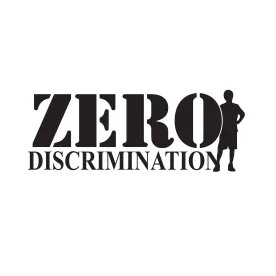New York City’s legislation amending the New York City Human Rights Law, Local Law 61 of 2023, prohibits discrimination based on a person’s height or weight in employment, housing, and public accommodations. The new law took effect Nov. 26, 2023.
As stated by Mayor Eric Adams:
No one should ever be discriminated against based on their height and weight. We all deserve the same access to employment, housing, and public accommodations, regardless of our appearance. It shouldn’t matter how tall you are or how much you weigh when you’re looking for a job, are out on the town, or trying to rent an apartment. This law will help level the playing field for all New Yorkers, create more inclusive workplaces and living environments, and protect against discrimination.
New York City has posted FAQs on its dedicated webpage to inform employers, housing providers, and public accommodations about Local Law 61 of 2023 prohibiting height and weight discrimination and to educate New Yorkers on their rights. Regulations to provide greater guidance on the law are expected. (For details of the employment-related provision, see our article, New York City Enacts Legislation Prohibiting Discrimination Based on Height, Weight.)
Housing FAQs
As to housing, the FAQs state, “Landlords, property managers, realtors, and their agents must treat applicants seeking housing, and current tenants the same regardless of height, weight, or body size.” The term “agent” is not defined in the FAQs. This list also should not be viewed as exclusive. For example, co-op boards that interview applicants are covered by and should comply with the law.
Unlike the employment law exceptions and defenses under the law, height, weight, or body size are never permissible criteria and there are no exceptions when it comes to New York City housing. Moreover, “stereotypes or speculative health and safety concerns regarding body size stem from entrenched bias and do not constitute permissible justifications for height or weight discrimination in housing.”
The FAQs pose the following question: “I am a realtor, and I choose which units to show applicants based on my decision about which units and buildings would be appropriate or safe for someone of their body size. If I don’t think so, I don’t show it. Is this ok?” The question is answered in the negative, because it would be a violation of the law on the grounds that it would be an impermissible stereotype or speculative health and safety concern regarding body size.
The FAQs also make clear that assumptions about someone’s ability to utilize a housing space based on body size are unlawful. For example, declining to show a person of small stature an apartment because it has high ceilings and cabinets that might be hard to reach violates the law. Similarly, it would be a violation to refrain from showing an apartment to a person based on body size due to speculative concerns about any possible effects on the property.
Enforcement
The law is enforced by the New York City Commission on Human Rights. If there is a violation, the Commission can order a respondent to cease and desist from engaging in the unlawful conduct, mandate policy changes, and order a respondent to pay emotional distress damages, among other remedies. The Commissioner may also assess civil penalties (paid to the City of New York) of up to $125,000 for violations, and up to $250,000 for violations that are the result of willful, wanton, or malicious conduct. Further, the Commissioner can require respondents to take other actions such as training for managers, agents, and employees.
Next Steps
Landlords, property managers, realtors, and others in residential real estate should take steps to ensure that height and weight are included as protected classifications in their equal housing opportunity and anti-harassment policies.
Proactive training should be provided to appropriate individuals to ensure compliance with the new law. Training materials should be updated to include the new legal requirements.




 />i
/>i

